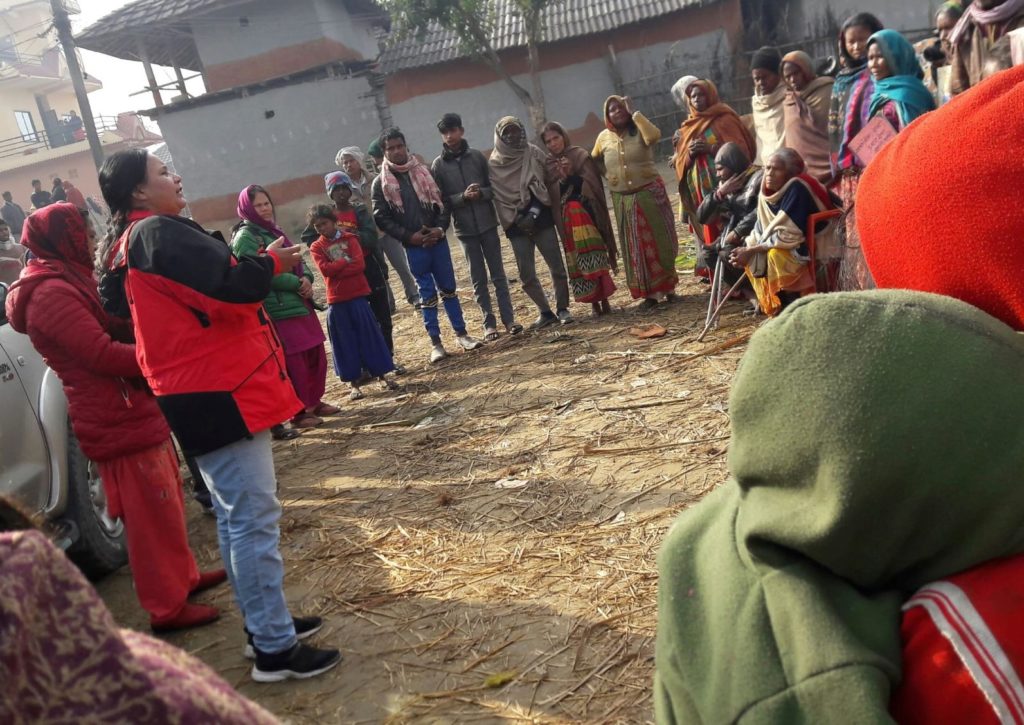The impact of COVID-19 lockdowns from partners in Southern Asia
The Southern Asia region, comprising of Afghanistan, Bangladesh, Bhutan, Brunei, Cambodia, East Timor, India, Indonesia, Laos, Malaysia, Myanmar, Nepal, Pakistan, Singapore, Sri Lanka, Thailand, and Vietnam, is one of the most populous regions in the world. Although many of these countries have reported fewer deaths and confirmed cases, as per some analysts, it is hard to be definite about these claims in view of the limited testing and monitoring capacities. With the indefinite nature of the lockdowns, and with most services and industries shut, and with hardly any economic activity, millions of people who live on daily wages are now exposed to hunger and homelessness. Churches in this region, although small and many, are actively engaged in community awareness and in reaching out to the most marginalized sections with daily supplies.
The following are news updates from Global Ministries partners and associates in the region:
INDONESIA
West Sulawesi, Indonesia
Following the Indonesian government’s orders to follow “physical distancing” and “stay at home,” all our church activities have adapted accordingly. Starting March 22, worship services are being done online and ministers and elders have been preparing liturgies to be used at home. Pastors, individually, still make pastoral visits to the very needy congregation member like those who need to be prayed at home.
The Protestant Church in West Sulawesi (GKSB) is cooperating with the government’s policies and measures to stop Coronavirus spread. Even though West Sulawesi is still free from Corona infection (as far as we know), we encourage our people to stay at home and follow the advice to wash their hands often, avoid gatherings, eat good food, etc. We have put up banners in front of the church building to encourage people to fight Corona together but not to be intimidated by Corona. Our government has extended the stay-at-home orders up to April 21. But many of our people cannot stay at home; they must work outside in order to earn something for themselves and their families. All villages are closed to outsiders. We pray for our people, our nation, and those who are risking their lives – doctors and other medical personnel. We thank Global Ministries for thinking about and praying for us. We also pray for you that God may continue to use you all in God’s mission.
Robert P. Borrong, Advisor, Protestant Church in West Sulawesi, Mamuju.
Sumba, Indonesia
As of April 17th, there are 407 new confirmed COVID-19 cases and bringing the total number of Covid19 Patients in Indonesia to 5,923. The total number of recovered patients has increased to 607, while the current total death toll is 520. The government issued a program called “Large-scale Social Restriction” (PSBB), but people seem to ignore it. This is the end of the fifth week where some people are working from home and many people got laid off. My main concern is the result of COVID-19 testing, which is very slow. It takes 3 to 9 days for the results.
CSOs and church groups are working together to help those who are in need by giving out packages of basic food; giving PPEs, masks, and vitamins to the hospitals; financially supporting drivers of taxis; supporting small restaurants and asking them to provide lunch boxes for anyone who is in need. Even though there are no positive COVID-19 patients in Sumba now, the local government is following the orders from the central government. Thus, the impact is mostly the same as those who are in the big cities.
Like many churches in the big cities, some churches in Sumba are offering online Sunday services while those in villages distribute paper liturgies and ask their congregation to conduct the service at home. Several churches in Sumba are giving out a package of basic food and educating people on how to stay clean and home as much as they can. My church in Jakarta, GPIB Tugu, is giving out a package of basic food to church members. I signed up as a volunteer at the Communion of Churches in Indonesia (CCI) for their program called “Church fights for COVID-19” (GMC19). With my college friends, we collected money and sent it to 5 friends who are ordained ministers and currently serving in Sumba and Timor island. It is not much but we hope it helps whatever programs they have, such as providing soap, buckets for clean water, masks, or a bag of basic food. Having said that, we put our faith in God and humanity as well.
Meliani E. Murtiningsih Yeni Kurniawati, Indonesian Women Theologian Network in
Sumba (PERUATI Sumba) and Protestant Church in Sumba, Wiangapu.
NEPAL
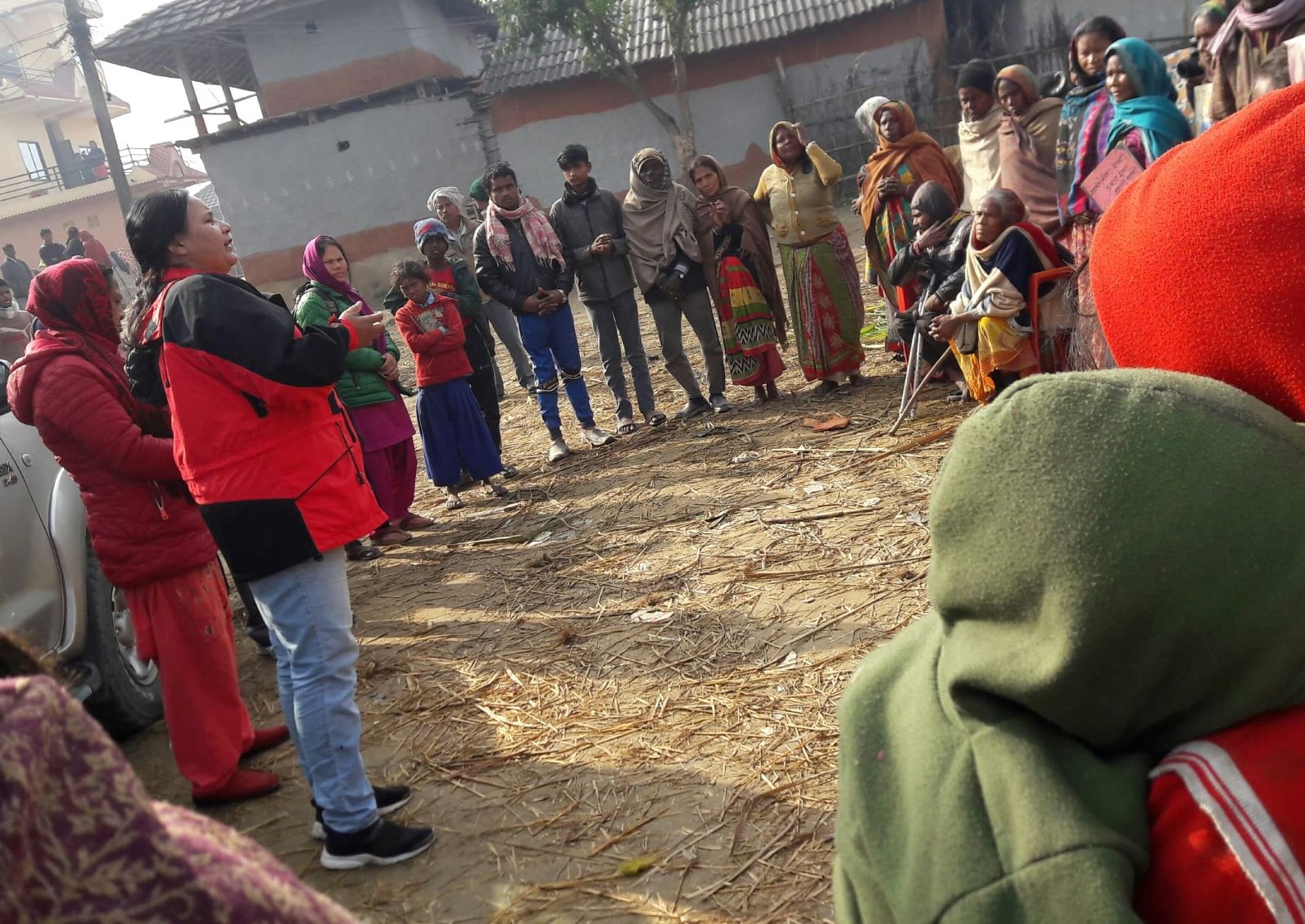 As of 14 April 2020, Nepal has 16 confirmed cases of COVID-19. 10 of them had recently returned from abroad, and three others are Indian nationals residing in Nepal. Altogether 6607 individuals were tested for COVID-19. The community-level expansion of COVID-19 is still stable and most reported cases are from the plains area of the Indo-Nepal border. 13 provincial hospitals that have 29913 quarantined and 3128 in isolation beds are conducting an examination of COVID-19 through Polymerase Chain Reaction (PCR) method. The country has been facing a nationwide lockdown since 13 March, which will be effective until April 27, as part of measures to stem the spread of the coronavirus in the country.
As of 14 April 2020, Nepal has 16 confirmed cases of COVID-19. 10 of them had recently returned from abroad, and three others are Indian nationals residing in Nepal. Altogether 6607 individuals were tested for COVID-19. The community-level expansion of COVID-19 is still stable and most reported cases are from the plains area of the Indo-Nepal border. 13 provincial hospitals that have 29913 quarantined and 3128 in isolation beds are conducting an examination of COVID-19 through Polymerase Chain Reaction (PCR) method. The country has been facing a nationwide lockdown since 13 March, which will be effective until April 27, as part of measures to stem the spread of the coronavirus in the country.
Before the lockdown, most Civil Society Organizations (CSOs) and churches had been engaged in awareness-raising activities. However, after the lockdown, the community mobilization has totally stopped. Now, most of the CSOs and churches are promoting a digital way to raise practical awareness to prevent COVID-19.
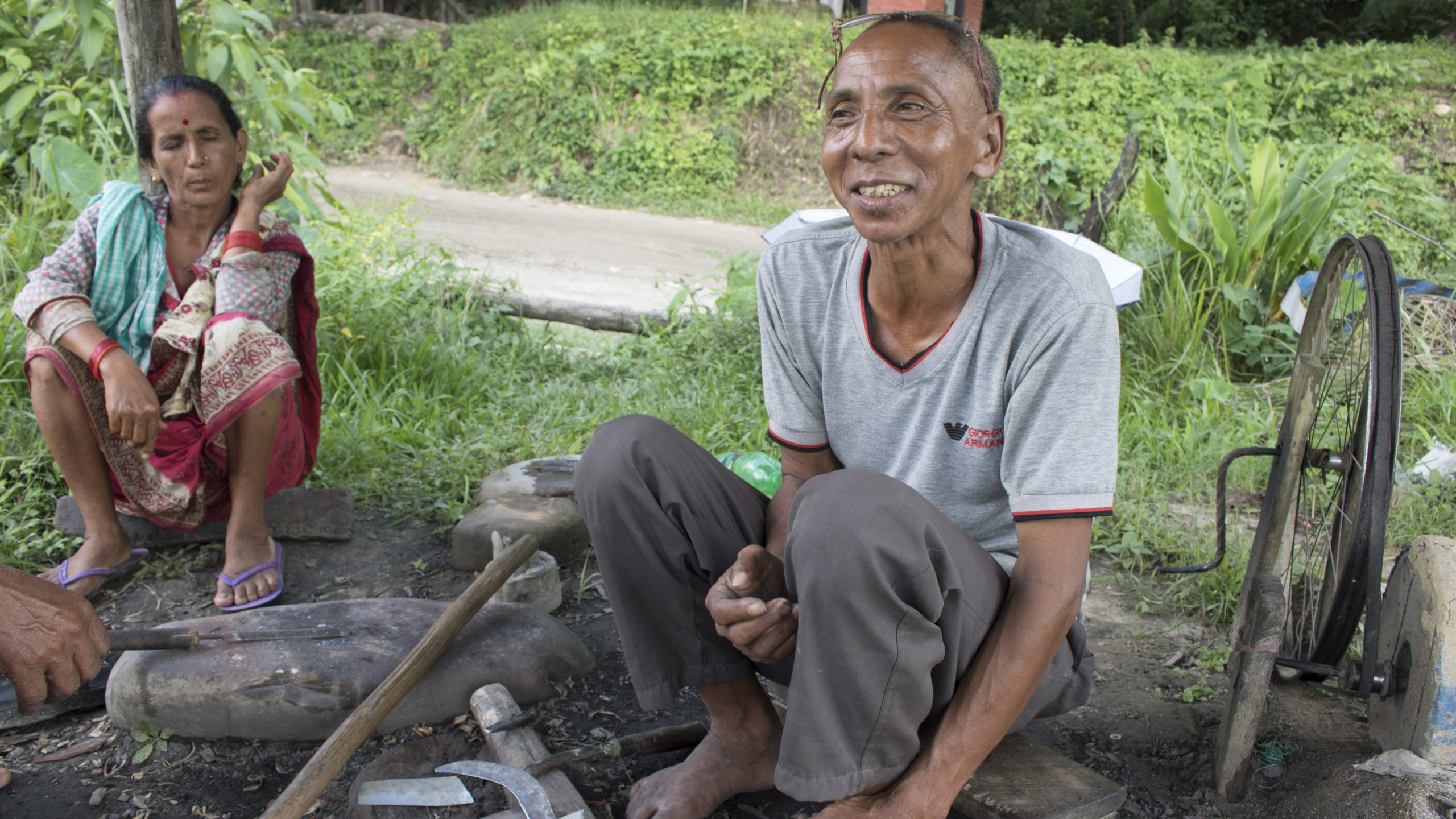 The government of Nepal has announced a relief package that includes a 25% discount on electricity for consumers who use more than 150 units every month, and no penalty if utility bills and tax payments are not cleared till mid-April. The government has asked Internet Service Providers to extend a 25% discount to customers on data and voice call packages. However, the government failed to address the impact of lockdown on the daily life of low-income people, with special priority for expecting mothers, orphans, disabled, and excluded communities. As per the government’s announcement, poor families and informal sector workers who have a citizenship certificate can access relief from the ward level. However, there is a risk of the relief package being politicized and being diverted to party cadres.
The government of Nepal has announced a relief package that includes a 25% discount on electricity for consumers who use more than 150 units every month, and no penalty if utility bills and tax payments are not cleared till mid-April. The government has asked Internet Service Providers to extend a 25% discount to customers on data and voice call packages. However, the government failed to address the impact of lockdown on the daily life of low-income people, with special priority for expecting mothers, orphans, disabled, and excluded communities. As per the government’s announcement, poor families and informal sector workers who have a citizenship certificate can access relief from the ward level. However, there is a risk of the relief package being politicized and being diverted to party cadres.
As per the government relief package, 4,346,046 who have no citizenship certificates (Forum for Women, Law & Development, 2015) will be affected. In a panic, many are heading back to their villages from the major cities of Nepal. The effect has been a walking exodus of hundreds of people attempting to walk many miles to get back to their homes. Similarly, Human Rights Watch, in a statement released on 31 March 2020 said Nepal had abandoned its workers in the fight against COVID-19, as it denied the right to return of its citizens. The authorities in Nepal have failed to take necessary measures to fulfill the Right to Freedom of Religion or Belief even in the pandemic situation.
SUS (Samari Utthan Sewa) responded to the COVID-19 pandemic through scaling up distribution of WASH (Water, Sanitation, and Hygiene) items and is establishing hand washing stations at strategic locations in Dalit and indigenous people populated areas. The staff is working hard to best respond to the food shortages affecting families, especially in Morang, Sarlahi, and Chitwan district of Nepal. Moreover, they are busy exploring the best ways of providing psychosocial support for those experiencing discrimination or feeling anxious and hopeless, now and in the critical months ahead. SUS recognizes the role played by religious leaders and faith-based organizations in the development of Nepali society, including in relation to promoting fundamental rights granted by the constitution of Nepal even in a pandemic situation. Many religious minorities and indigenous communities are poorer than majority communities, and the existing inherited structural-injustice directly impacts the design and implementation of COVID-19 response mechanisms.
Bimala Gayak, Samari Utthan Sewa (an NGO working with Dalits,
women and landless labourers, Lalitpur.)
BANGLADESH
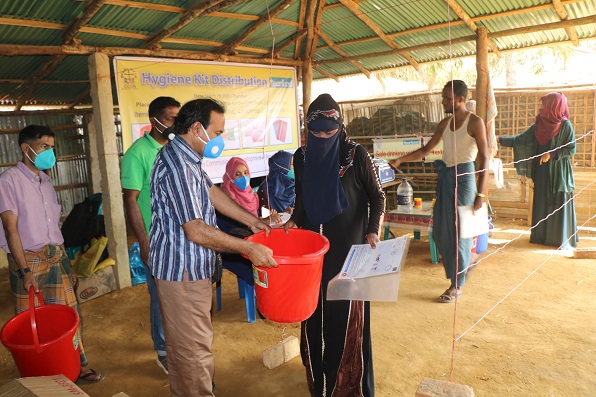 COVID-19 pandemic has had a huge socio-economic impact on growth, job loss, and an upsurge in poverty. Garment factories and remittances are the main sources of Bangladesh’s economy. Since it may result in a severe humanitarian crisis as part of a global recession, we need to think seriously about an appropriate response from NGOs/churches for ensuring rights and justice of the poor, marginalized ethnic, and religious minority groups in populous countries like Bangladesh.
COVID-19 pandemic has had a huge socio-economic impact on growth, job loss, and an upsurge in poverty. Garment factories and remittances are the main sources of Bangladesh’s economy. Since it may result in a severe humanitarian crisis as part of a global recession, we need to think seriously about an appropriate response from NGOs/churches for ensuring rights and justice of the poor, marginalized ethnic, and religious minority groups in populous countries like Bangladesh.
The Christian Commission for Development in Bangladesh (CCDB) responded by distributing 45000 leaflets on preventive measures for COVID-19 to all our field offices since the virus has transmitted at the community level. We have contributed a one-day salary for food assistance to the poor beneficiaries. Also, we are exploring opportunities to secure
additional funds through certain appeals to support these people in crisis. Our microfinance programme has already started food distribution on a small scale in our intervention areas. The Rohingya Programme already distributed Hygiene Kits among selected Rohingya beneficiaries and mosques within the camp and host community. The Comprehensive Poverty Reduction Programme and Climate Change Programme are expected to start food distribution this month in accordance with government safety compliances.
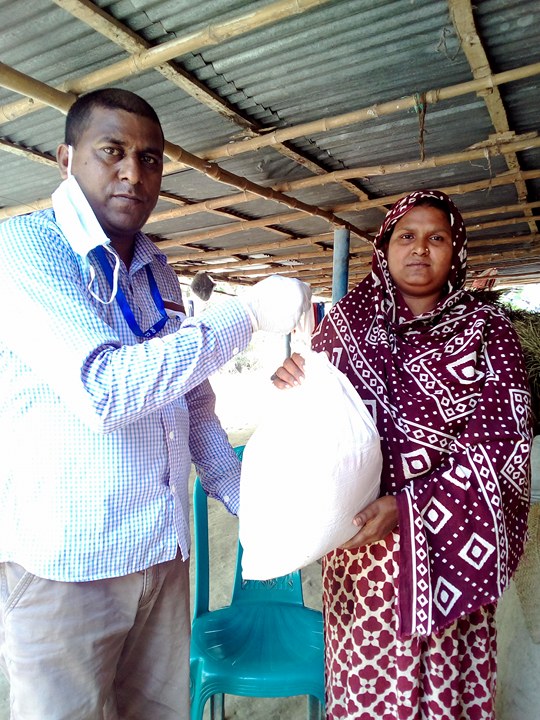
Ms. Julaite Malakar, director designate, CCDB, adds: Up to April 17, 2020, 1838 persons have been diagnosed with the COVID-19 virus and 75 have died as per government figures. The healthcare system of the country is struggling to provide support to infected people. The government has closed all offices and transportation systems around the country. The low-income people such as rickshaw pullers, daily wage laborers, and small entrepreneurs/traders are struggling most in this crisis and facing a great decline in their earnings because of the enforcement of social distancing measures and lockdowns to fight COVID-19. Thank you once again for your concern and solidarity to fight this crisis together. Please keep us in your prayer and stay safe.
David Hilton, Associate Director, CCDB
SRI LANKA
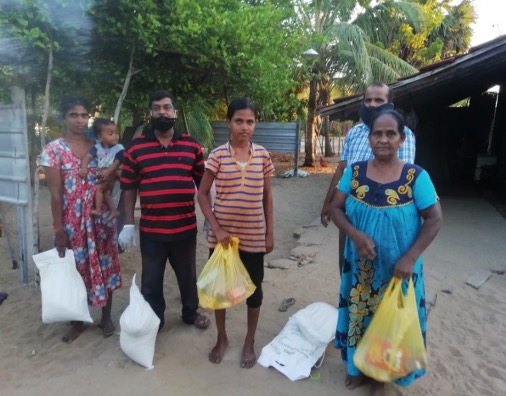 Curfews and Lockdowns are not new to us. Particularly, we, the North-East Tamils and Tamil-speaking communities in Sri Lanka have had enough experience under the government orders of curfews and lockdowns from the early 1980s to 2009. However, the situation is very different now. The entire country is locked down and all diverse communities have been subjected to the order of government in the name of the COVID-19 global pandemic. To date (April 17, 2020), 242 people have contracted the virus, 77 persons have recovered and there have been 7 deaths. If we compare our situation to other parts of the world, we feel relatively safe due to the government’s serious action of curfews, lockdown, and personal quarantines and free medical care systems. But behind the screen of curfews, lockdown, and quarantined households, certainly, we hear lots of mourning, screaming, and suffering. Of course, a lot of hidden people are rapidly dying not only by the infection of COVID-19 but also by the cause of poverty and discrimination. On the one hand, curfews and lockdowns are keeping us from contracting the contagion of COVID-19 but on the other hand, many people are greatly suffering due to the lack of income, access to proper food, safe water, and medical care. The most threatening concerns are racism and religious extremism strategically rising up in the name of COVID-19 response.
Curfews and Lockdowns are not new to us. Particularly, we, the North-East Tamils and Tamil-speaking communities in Sri Lanka have had enough experience under the government orders of curfews and lockdowns from the early 1980s to 2009. However, the situation is very different now. The entire country is locked down and all diverse communities have been subjected to the order of government in the name of the COVID-19 global pandemic. To date (April 17, 2020), 242 people have contracted the virus, 77 persons have recovered and there have been 7 deaths. If we compare our situation to other parts of the world, we feel relatively safe due to the government’s serious action of curfews, lockdown, and personal quarantines and free medical care systems. But behind the screen of curfews, lockdown, and quarantined households, certainly, we hear lots of mourning, screaming, and suffering. Of course, a lot of hidden people are rapidly dying not only by the infection of COVID-19 but also by the cause of poverty and discrimination. On the one hand, curfews and lockdowns are keeping us from contracting the contagion of COVID-19 but on the other hand, many people are greatly suffering due to the lack of income, access to proper food, safe water, and medical care. The most threatening concerns are racism and religious extremism strategically rising up in the name of COVID-19 response. 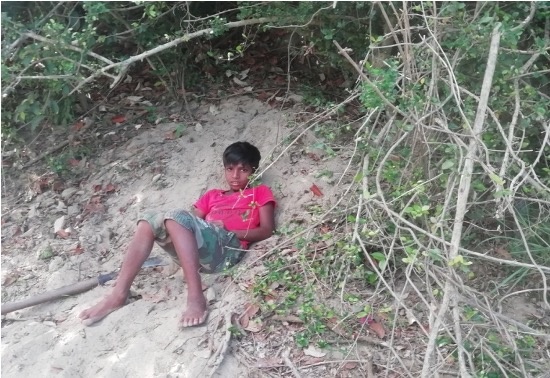 During this uncertain time of death, disaster, and darkness, the CACM is committed to being a “Participatory Church,” which means the church is ready to physically and ethically engage with suffering with marginalized communities to ensure their holistic wellbeing. Secondly, the CACM is committed to being a “Productive Church,” meaning the church empowers marginalized children and youth to be a creative and transformative source of the communities. Likewise, the CACM empowers selected rural communities to be socially empowered and economically sustained at the household level. Thirdly, being a prophetic church, it means the church is the voice of the voiceless, practicing God’s transformative love and praxis in terms of protected and sustained life of all people and creation.
During this uncertain time of death, disaster, and darkness, the CACM is committed to being a “Participatory Church,” which means the church is ready to physically and ethically engage with suffering with marginalized communities to ensure their holistic wellbeing. Secondly, the CACM is committed to being a “Productive Church,” meaning the church empowers marginalized children and youth to be a creative and transformative source of the communities. Likewise, the CACM empowers selected rural communities to be socially empowered and economically sustained at the household level. Thirdly, being a prophetic church, it means the church is the voice of the voiceless, practicing God’s transformative love and praxis in terms of protected and sustained life of all people and creation.
Rajan Rohaan, Church of American Ceylon Mission, Batticaloa, Sri Lanka
INDIA
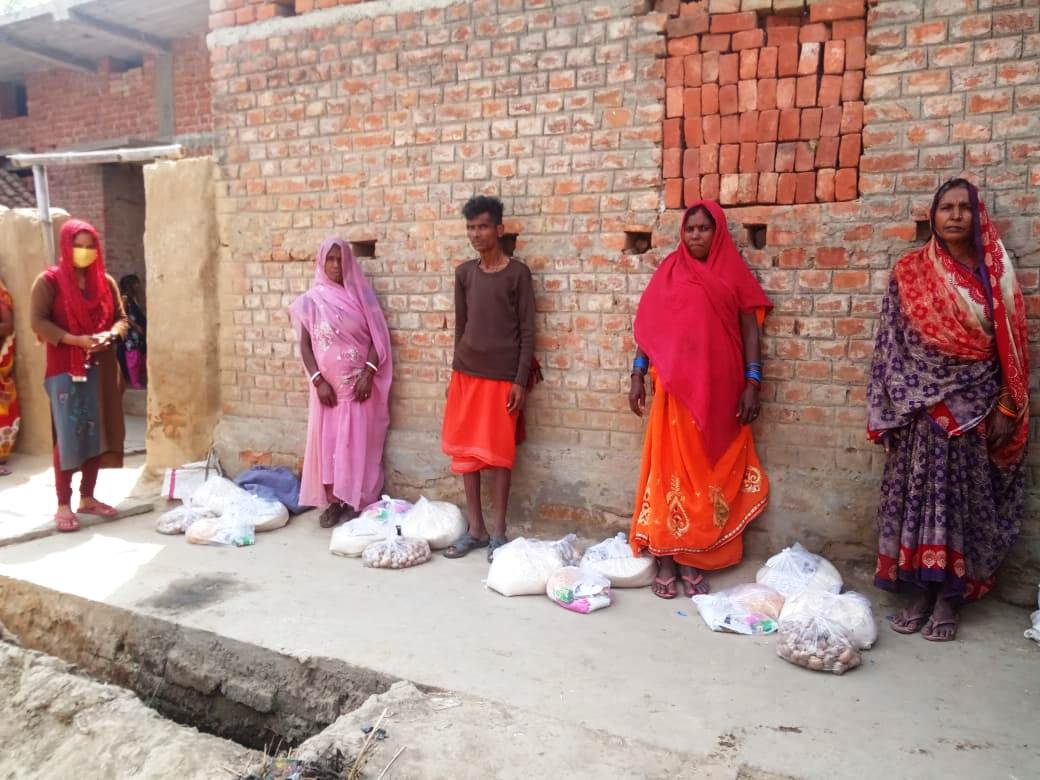 ‘Before we are infected by corona, we will die of hunger.’
‘Before we are infected by corona, we will die of hunger.’
India’s poor, about a third of the 1.3 billion people, a large majority of them from the Dalit, Tribal, Muslim and other Minority religions, nomadic communities face unemployment, devoid of any cash income, hunger, poverty, abuse and ill-health immediately and may continue for six months to one year ahead. The lockdown from 24th March 2020 has brought the country to an economic standstill. Many of the poor – daily wage workers and distressed migrants – are reporting cutting down on meals. Their resources do not stretch beyond 3-4 days. With the lengthening of the lockdown, the second layer of the poor – domestic workers, artisans, tailors, washer people, small businesses, workers in restaurants, malls, and factories are all facing hunger. Without work and money, migrants prefer to walk 200-400 kilometers home. In many places, they face police violence, hunger, and thirst, including cases of death.
The civil society organizations have been among the first to respond. Despite the lockdown, NGOs are organising feeding centres and dry rations for a family for 2 weeks to one month of rice, wheat, pulses, oil, and some spices, along with masks and soaps. Other organisations such as churches, Christian medical centres, gurudwaras, Hindu, and Muslim religious organisations have come forward to open up their spaces for the migrant laborers, support them with cooked food and dry rations, and provide masks and soaps. In some places, local communities and organised groups are also pitching in to provide food and immediate cash benefits too. However, the need and demand can only be met, according to experts, by setting aside 5-7% of the national GDP for the response.
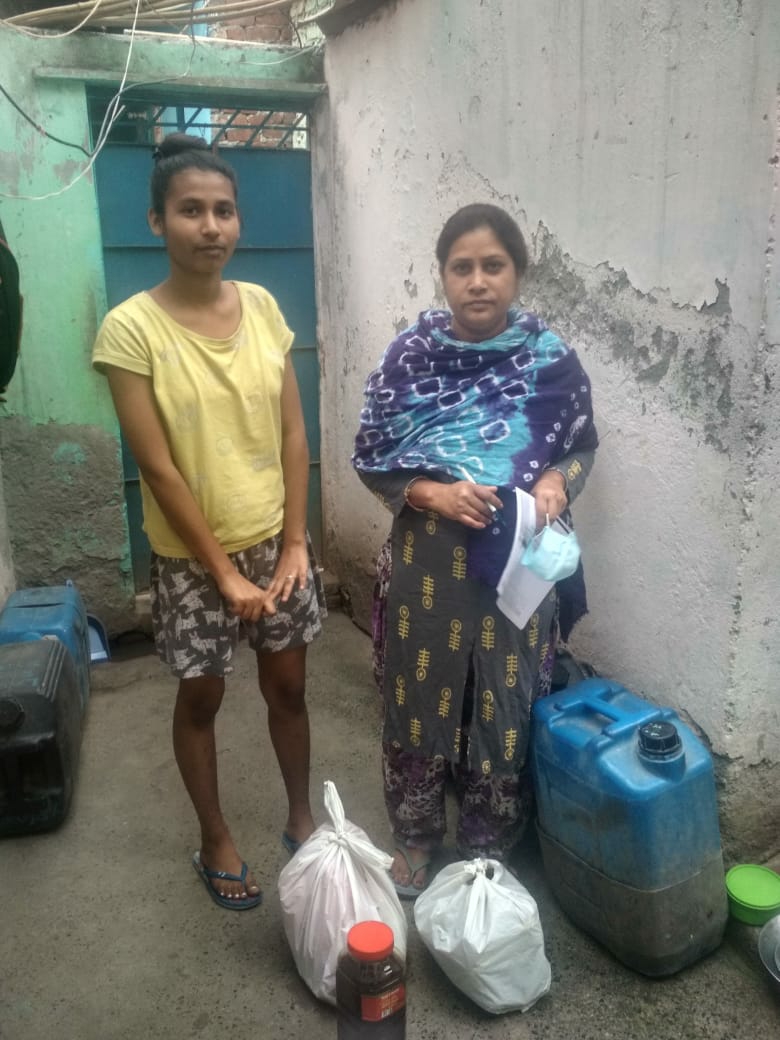 The Center for Social Equity and Inclusion (CSEI), New Delhi, working with Dalits, Tribals, and Muslims in Delhi and Bihar, was only too aware of the context of these communities across the country. On 25 March we started with a WhatsApp group to partner with NGOs and volunteers to report what was happening in their communities. About 41 organisations and 212 volunteers from Bihar, Delhi, Uttar Pradesh, Madhya Pradesh, and Rajasthan linked on it and we kept a daily review of the situation of about 500 villages.
The Center for Social Equity and Inclusion (CSEI), New Delhi, working with Dalits, Tribals, and Muslims in Delhi and Bihar, was only too aware of the context of these communities across the country. On 25 March we started with a WhatsApp group to partner with NGOs and volunteers to report what was happening in their communities. About 41 organisations and 212 volunteers from Bihar, Delhi, Uttar Pradesh, Madhya Pradesh, and Rajasthan linked on it and we kept a daily review of the situation of about 500 villages.
Our immediate effort was to pool resources and request donations from family and friends, locally and also to donors. We have been able to link many families to local donors for immediate cash benefit. CSEI, in addition, has provided dry rations to 500 families in the first round, a week after the lockdown, and to another 400 families in the second week. We have so far reached about 900 families with just dry rations. We are into the process of making the third round of about 800 families. We fear that what progress was made will go backward, caste and communal riots and violence will increase – dark days ahead and not sure where the end of the tunnel is.
Annie Namala, Director, CSEI, New Delhi.
THAILAND
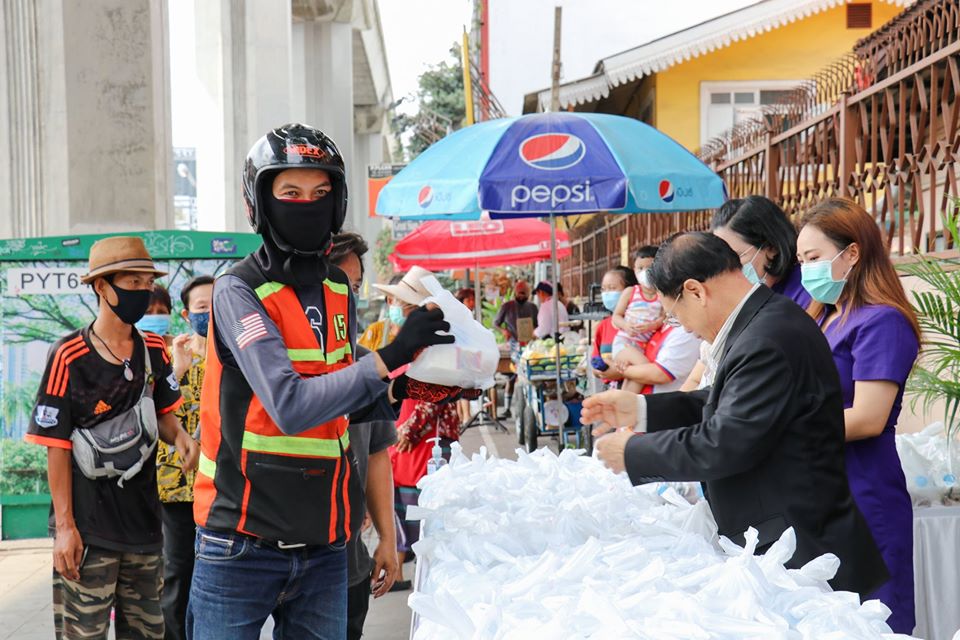 Public services, schools, and all non-essential shops are closed and all public gatherings, including religious services, have been suspended. Many events have also been canceled such as the Thai New Year (13-15 Apr.). Also, the government has announced a nationwide curfew from 10 pm to 4 am every day from the end of March until now. Many people such as taxi drivers, motorcycle taxis, street food sellers, and similar others are without work and income.
Public services, schools, and all non-essential shops are closed and all public gatherings, including religious services, have been suspended. Many events have also been canceled such as the Thai New Year (13-15 Apr.). Also, the government has announced a nationwide curfew from 10 pm to 4 am every day from the end of March until now. Many people such as taxi drivers, motorcycle taxis, street food sellers, and similar others are without work and income.
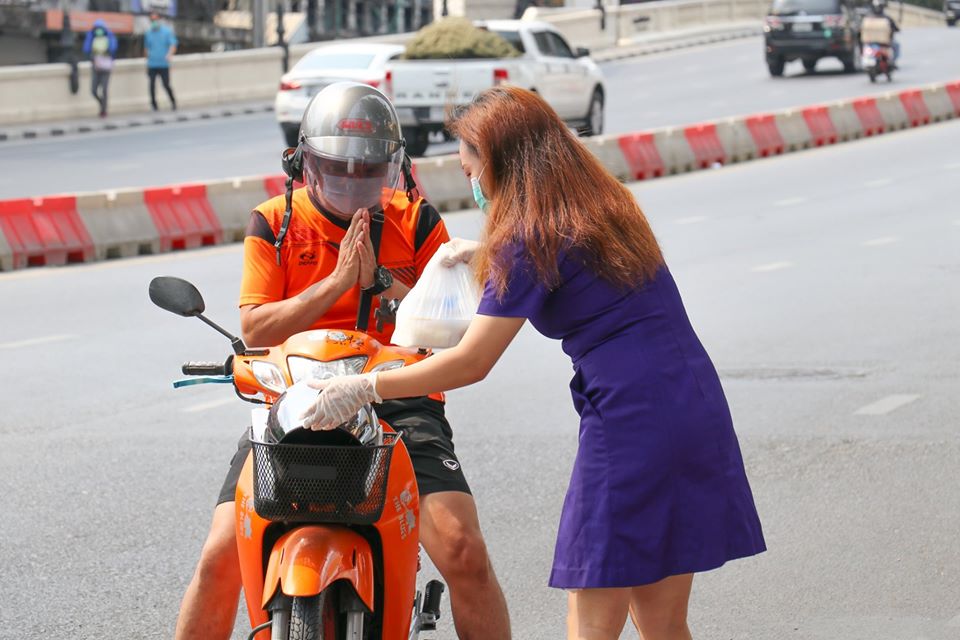
Today (15 Apr.), the number of Thai people infected with the coronavirus is 2,613; 1,405 have recovered, 1167 are still being treated, and 41 people have died.
The Church of Christ in Thailand (CCT) is encouraging its churches to strictly follow the health guidelines of the government and health Ministry. It is also encouraging our churches to do Sunday worship through the electronic media, i.e. Facebook and online, for the protection of the church members. CCT is also arranging special life insurance for its pastors and staff.
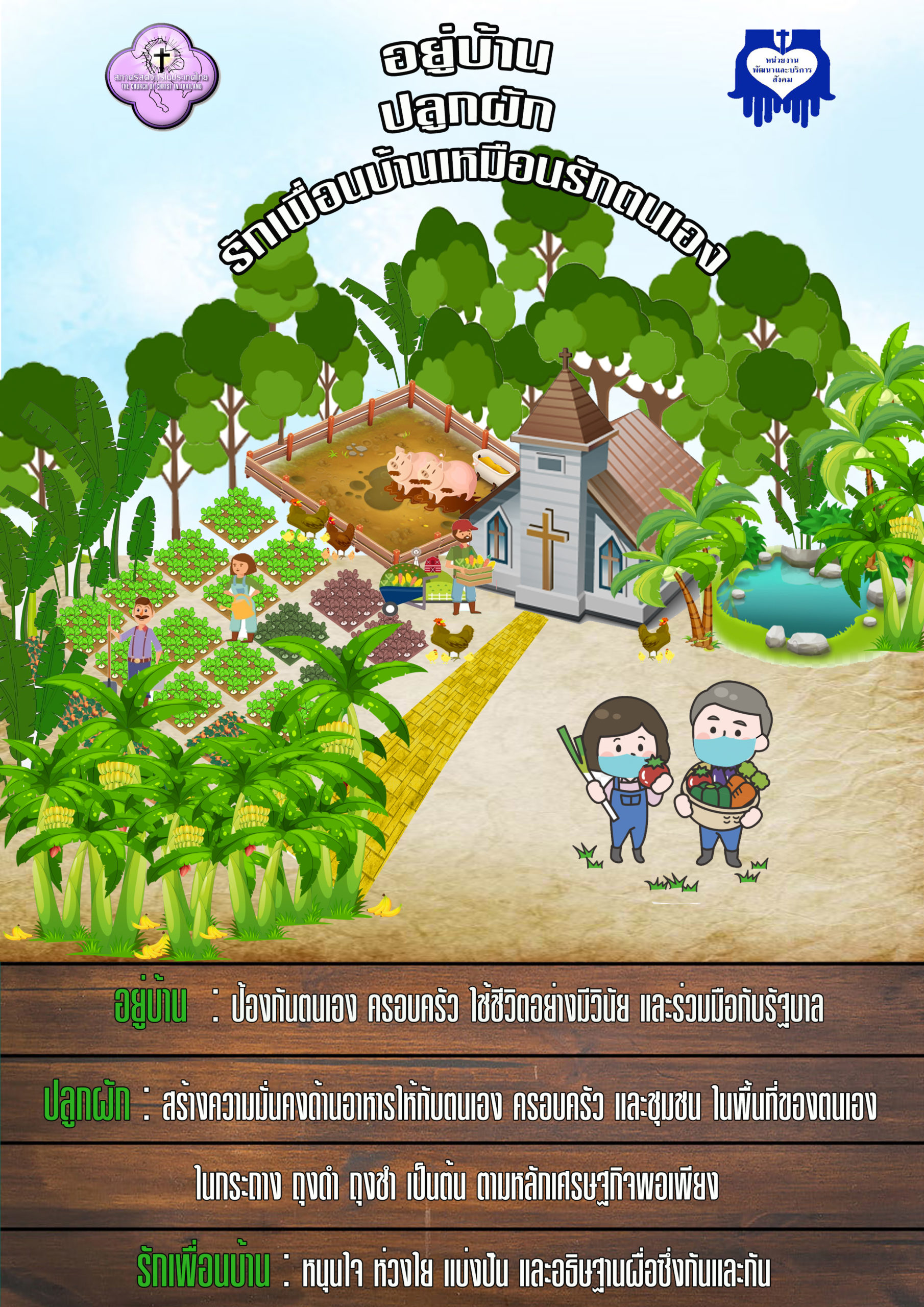 CCT headquarters in Bangkok has had the opportunity to help 500 people with food packets and 800 families with rice. CCT-Social Development and Service Unit (SDSU) encourages our churches and brothers and sisters in Christ to grow vegetables during the time of the government ordered to stay at home. SDSU has launched a campaign with the following slogans – “Stay home, Grow vegetables, Love your neighbor as yourself”. “Stay Home: To protect yourself and family, living life with discipline and cooperate with the government”, and “Grow vegetables: To build Food security in the organic community in their own area.”
CCT headquarters in Bangkok has had the opportunity to help 500 people with food packets and 800 families with rice. CCT-Social Development and Service Unit (SDSU) encourages our churches and brothers and sisters in Christ to grow vegetables during the time of the government ordered to stay at home. SDSU has launched a campaign with the following slogans – “Stay home, Grow vegetables, Love your neighbor as yourself”. “Stay Home: To protect yourself and family, living life with discipline and cooperate with the government”, and “Grow vegetables: To build Food security in the organic community in their own area.”
Rungtiwa Mamo, Ecumenical
Relations Officer, CCT, Bangkok
PAKISTAN
Bordering China and Iran, the two hotspots in the pandemic, Pakistan recorded over 7000 cases of infection and 137 deaths up to 17 April. However, the actual number of infections and fatalities may be much higher because of limited testing, data collection, and hospitalization capacity. The paucity of resources delayed the government response after the lock-down announced on 17 March 2020. However, the NGOs and churches stepped in to help the needy as 25% of the population is living below and another 15 percent at the poverty line. The people who are discriminated against and marginalized due to their religion, sexual identity, and origin are particularly vulnerable to disease as well as prone to suffered neglect in provisions of relief.
Initially, the Centre for Social Justice contributed food rations to 250 families. It is reaching out to 750 more during this week. We pray and wish to reach as many needy as possible.
Peter Jacob, Director, Centre for Social Justice, Lahore

